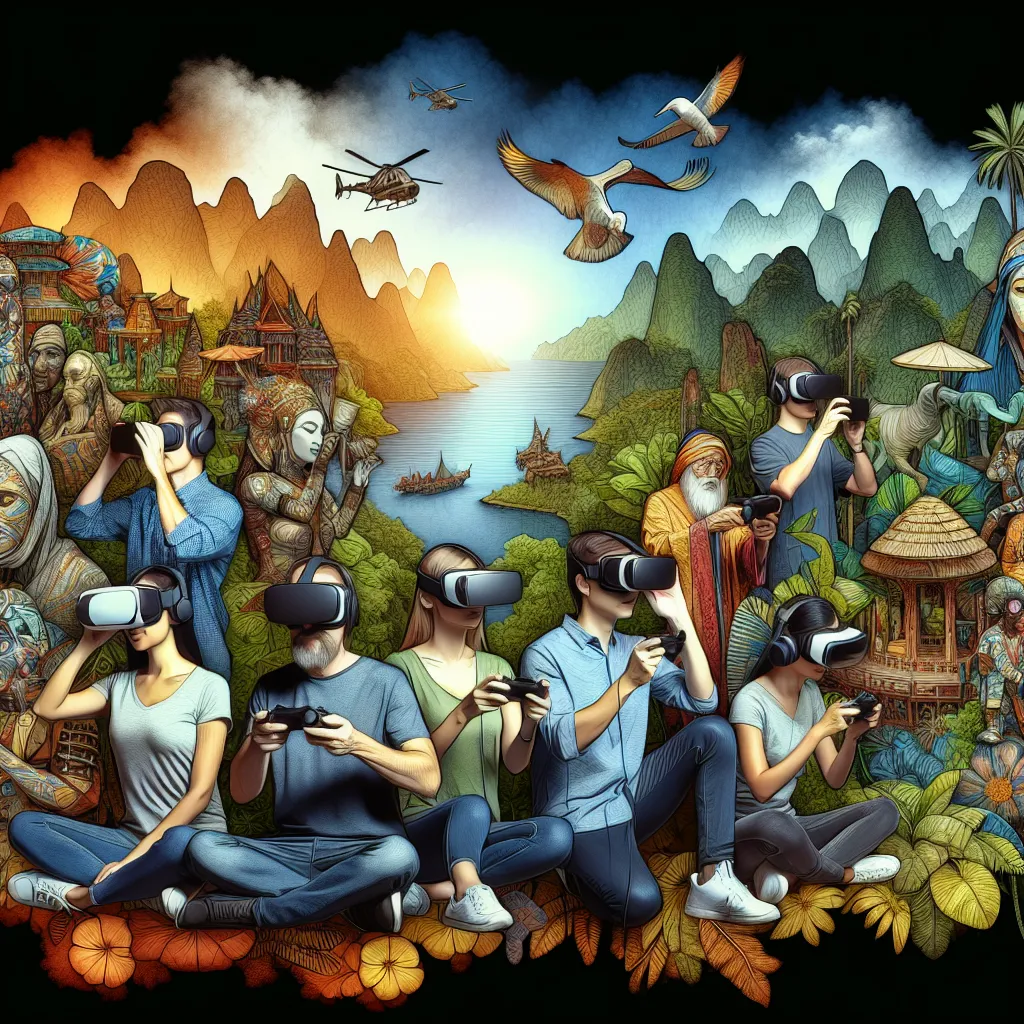The Future of Travel: Virtual Exploration in the Digital Age
The future of travel is undergoing a significant transformation with the rise of virtual exploration in the digital age. As technology continues to advance, the way people experience new destinations is evolving, offering a plethora of opportunities for virtual travel experiences.
In the past, travelers relied on physical visits to famous landmarks and exotic locations to quench their thirst for exploration. However, with the advent of virtual reality (VR) and augmented reality (AR) technologies, individuals can now embark on virtual journeys to virtually any place on earth, from the comfort of their own homes.
Virtual travel experiences provide an immersive and interactive way to discover new destinations. Through VR headsets or AR applications, users can explore realistic 3D replicas of famous landmarks, dive into the depths of coral reefs, or trek through remote wilderness, all without leaving their living rooms. This not only opens up opportunities for individuals who may have physical limitations that impede traditional travel, but also offers a sustainable alternative that reduces the carbon footprint associated with traditional tourism.
Furthermore, the digital age has paved the way for innovative platforms and apps that curate virtual travel experiences, offering users the ability to customize their journeys based on personal interests. From historical tours of ancient civilizations to virtual safaris in African savannas, the options are diverse and cater to a wide range of preferences.
As the travel industry embraces the potential of virtual exploration, it is evident that the future of travel is not solely confined to physical voyages. Virtual travel experiences are set to become increasingly sophisticated, blurring the lines between the real and digital worlds, and providing a gateway to limitless exploration for individuals across the globe.
Navigating the Virtual World: A Journey Through Augmented Travel Experiences
In recent years, the travel industry has witnessed a remarkable shift towards virtual travel experiences, allowing people to explore the world from the comfort of their own homes. One of the most fascinating aspects of this trend is the rise of augmented travel experiences, which offer users the opportunity to navigate virtual worlds and embark on immersive journeys unlike anything they could experience in the physical realm.
Augmented reality (AR) technology has significantly enhanced virtual travel experiences by superimposing computer-generated images onto the user’s view of the real world. This technology enables travelers to navigate through virtual landscapes, interact with lifelike environments, and even engage with historical or cultural elements in a way that blurs the lines between reality and virtuality.
By donning a pair of AR glasses or using a compatible smartphone app, users can embark on simulated adventures through iconic landmarks, ancient cities, or natural wonders. Navigating the virtual world through augmented travel experiences allows individuals to delve into rich narratives, learn about diverse cultures, and witness breathtaking vistas, all without physically being present at the location.
Furthermore, augmented travel experiences present an array of opportunities for educational and informational purposes. Users can engage with interactive elements overlaid on historical sites, museums, or famous landmarks, gaining valuable insights and a deep understanding of the world’s heritage and history.
As the demand for immersive and interactive travel experiences continues to grow, the incorporation of augmented reality into virtual travel is poised to revolutionize the way people explore the world. Navigating the virtual world through augmented travel experiences offers a compelling glimpse into the boundless potential of technology to redefine the boundaries of traditional travel and provide unparalleled access to global destinations.
Unveiling the Potential: Virtual Travel as the Next Frontier in Tourism
Virtual travel experiences have been steadily gaining popularity, offering a unique way to explore the world from the comfort of one’s home. As technology continues to advance, the potential for virtual travel as the next frontier in tourism becomes increasingly evident.
With the rise of virtual reality (VR) and augmented reality (AR) technologies, travelers can immerse themselves in virtual travel experiences that closely replicate real-world destinations. These technologies allow users to explore iconic landmarks, historical sites, and natural wonders as if they were actually there. By leveraging high-definition imagery, 360-degree videos, and interactive elements, virtual travel experiences provide a sense of presence and engagement that was previously unattainable through traditional travel media.
Furthermore, virtual travel experiences have the potential to make tourism more accessible to individuals who may face physical, financial, or logistical barriers to traditional travel. Those with mobility limitations, budget constraints, or time constraints can still enjoy the thrill of exploring new destinations through virtual travel.
From a sustainability perspective, virtual travel holds promise as a means to reduce the environmental impact associated with traditional tourism. By eliminating the need for long-haul flights, accommodations, and other resource-intensive aspects of travel, virtual experiences could contribute to a more eco-friendly approach to exploring the world.
In addition to catering to individual travelers, virtual travel experiences also present opportunities for destination marketing and tourism promotion. Tourism boards, hotels, and travel companies can leverage virtual reality platforms to showcase their offerings, entice potential visitors, and provide a taste of what awaits them upon arrival.
As the technology and infrastructure supporting virtual travel experiences continue to evolve, so too will the potential to revolutionize the way people discover and engage with the world. The rise of virtual travel represents a compelling shift in the tourism industry, with far-reaching implications for travelers, businesses, and the environment.





